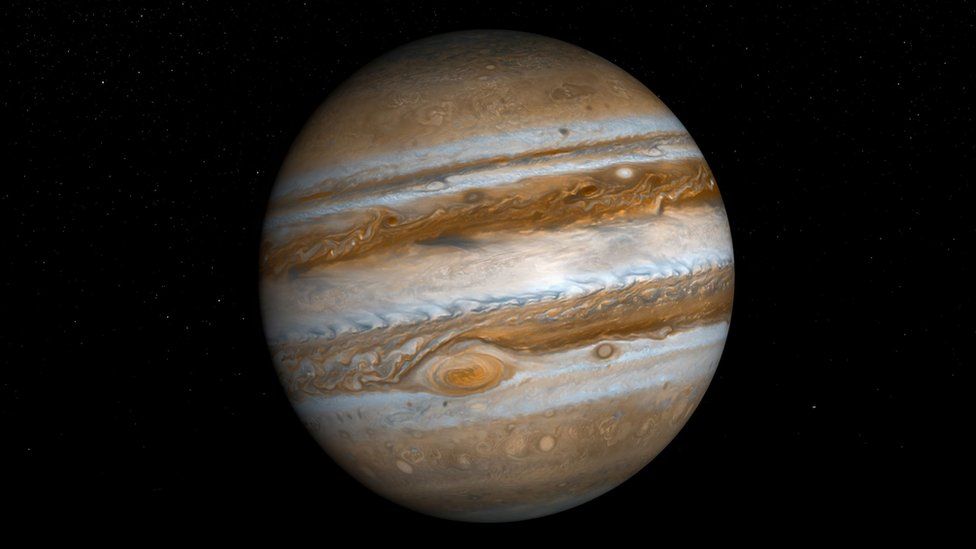Jupiter in opposition: You'll be able to see Jupiter in the sky this month
- Published
- comments

Get your binoculars and telescopes at the ready because Jupiter will be at its biggest and brightest this month!
The planet will be in opposition on Monday (26 September) which means Earth is directly in between Jupiter and the Sun.
It only happens once every 13 months and this time, it's the closest it has been to Earth in nearly 60 years.
When it's in this position, it's much easier to see in the night sky. You might even get a glimpse of its moons!
As long as it's not cloudy, you should be able to make out some details of Jupiter with just a small telescope or binoculars.
You could see Jupiter's atmosphere - which gives the planet its distinctive stripy look - as well as some of its moons.
The moons you're most likely to see are called the Galilean moons called Io, Europa, Ganymede and Callisto.
More stories that are out of this world!
But what if I don't have a telescope or binoculars?
Even if you don't have any equipment, you should still be able to spot Jupiter but you won't quite be able to make out the same sort of detail.
When you're looking up at the sky, you should be able to see what will look like a really bright star - that's Jupiter!
You shouldn't have to stay up too late to see it either. Although the darker it is outside, the brighter and easier it will be to spot.
It will start to rise at around 6.52pm and will remain visible until the sunrise at 6.57am the next morning.
Top tips for budding stargazers
- Wrap up warm!
- Turn off all the lights around you.
- It's better to be away from big building and lots of street lights if you can.
- You'll need to wait for a bit for your eyes to adjust to the darkness.
- What else can you see? Write down your observations!
What planets have you seen in the sky? Let us know in the comments below!
- Published21 September 2022
- Published25 September 2022
- Published20 September 2022
